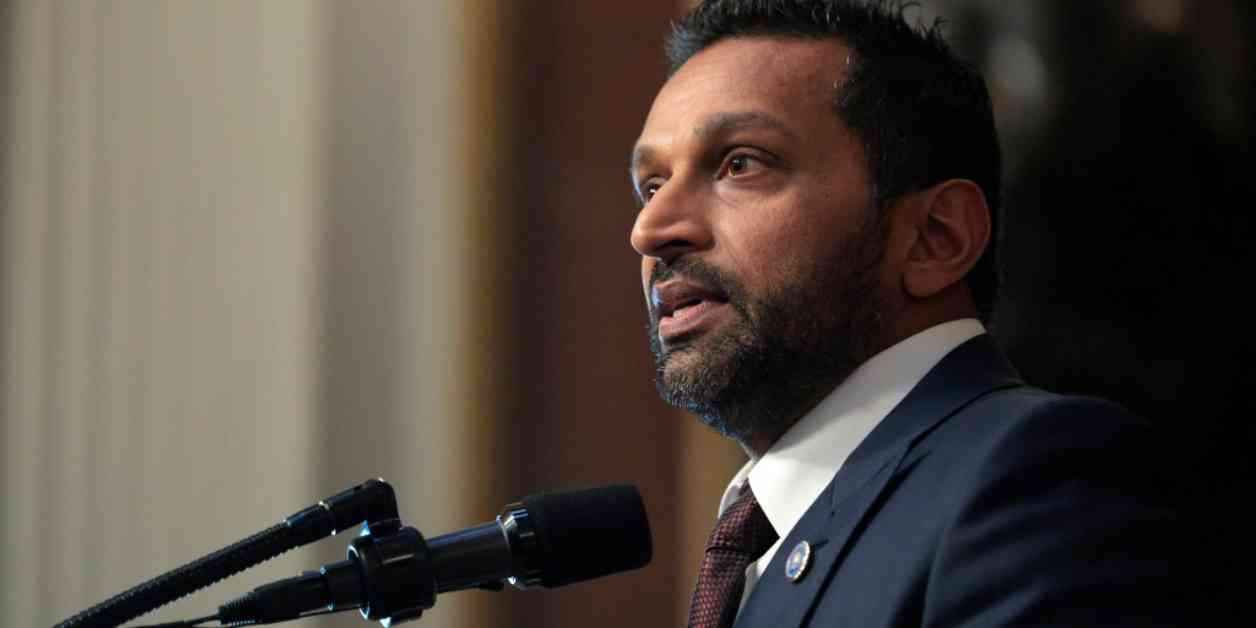President Donald Trump’s recent appointment of Kash Patel as the head of the Federal Bureau of Investigation (FBI) has sparked speculation that Patel will also take on a significant role as the Chief of the Bureau of Alcohol, Tobacco, Firearms and Explosives (ATF). Sources close to the White House have hinted at an imminent official announcement, possibly accompanied by a swearing-in ceremony in the coming week.
The ATF, a law enforcement agency operating under the Department of Justice, plays a crucial role in enforcing federal regulations governing the illicit use, sale, and trafficking of firearms and explosives, as well as the illegal diversion of alcohol and tobacco products. Over the years, the agency has been a focal point of contention among Republican lawmakers who view its actions as encroachments on Second Amendment rights. President Joe Biden’s recent initiatives to empower the ATF in regulating “ghost guns” and tightening firearm purchase loopholes have further intensified the scrutiny on the agency.
In response to these concerns, President Trump signed an executive order aimed at rolling back policies perceived to limit citizens’ constitutional right to bear arms. The White House criticized the ATF for allegedly targeting law-abiding gun owners and small businesses, accusing the Biden administration of jeopardizing Second Amendment freedoms. This escalating tension culminated in Rep. Lauren Boebert and Rep. Eric Burlison introducing legislation to dismantle the ATF entirely, citing an irreconcilable conflict between the agency’s mission and the interests of firearm owners nationwide.
The recent confirmation of Patel to lead the FBI, despite facing opposition from key Republican senators, underscores the administration’s commitment to reshaping law enforcement leadership. Patel’s impending dual role as head of the ATF signifies a strategic move by the Trump administration to realign key agencies with their vision for safeguarding constitutional rights and upholding law enforcement integrity.
Challenges and Controversies Surrounding the ATF
Under the Biden administration, the ATF has faced heightened scrutiny and criticism from conservative lawmakers, who perceive its regulatory actions as overstepping boundaries set by the Constitution. The agency’s efforts to curb the proliferation of untraceable firearms and tighten background check protocols have sparked intense debates over the balance between public safety and individual liberties. As calls for ATF reform grow louder on Capitol Hill, the future of the agency hangs in the balance, caught in a political crossfire that threatens to reshape the landscape of gun control policies in the United States.
Amidst allegations of partisanship and undue influence, the ATF finds itself at a critical juncture, navigating a complex terrain of legal, ethical, and political challenges. The recent dismissal of chief counsel Pamela Hicks by Attorney General Pam Bondi underscores the internal turmoil within the agency, as accusations of weaponizing law enforcement resources reverberate through its ranks. The turbulent dynamics at play within the ATF highlight the broader systemic issues facing federal agencies tasked with upholding public safety and regulating sensitive industries.
Implications of Patel’s Dual Leadership
As Kash Patel assumes leadership roles at both the FBI and potentially the ATF, the implications for law enforcement strategies and priorities remain uncertain. The convergence of these pivotal agencies under Patel’s stewardship raises questions about the administration’s long-term vision for combating crime, safeguarding national security, and preserving constitutional rights. With the ATF poised to undergo significant changes under new leadership, the public awaits further details on how Patel plans to navigate the agency’s complex mandate while addressing the diverse demands of stakeholders across the political spectrum.
In this evolving landscape of law enforcement leadership, Patel’s dual appointment signals a strategic pivot towards reshaping federal agencies in alignment with the administration’s policy agenda. The interplay between the FBI and the ATF, under Patel’s guidance, will likely shape the trajectory of key law enforcement initiatives and regulatory frameworks in the months ahead. As the nation grapples with pressing issues of public safety and constitutional rights, the unfolding narrative of Patel’s leadership at the helm of these critical agencies offers a window into the broader challenges and opportunities facing the U.S. law enforcement landscape.
Stay tuned for updates on Patel’s official appointment as Chief of the ATF and the potential impact of his leadership on federal law enforcement priorities. As the political and legal landscapes continue to shift, the role of agencies like the ATF in shaping public policy and upholding constitutional principles remains a focal point of national discourse. The intricate dance between law enforcement agencies, political actors, and public opinion underscores the complex interplay between security imperatives, civil liberties, and the rule of law in a democracy.


